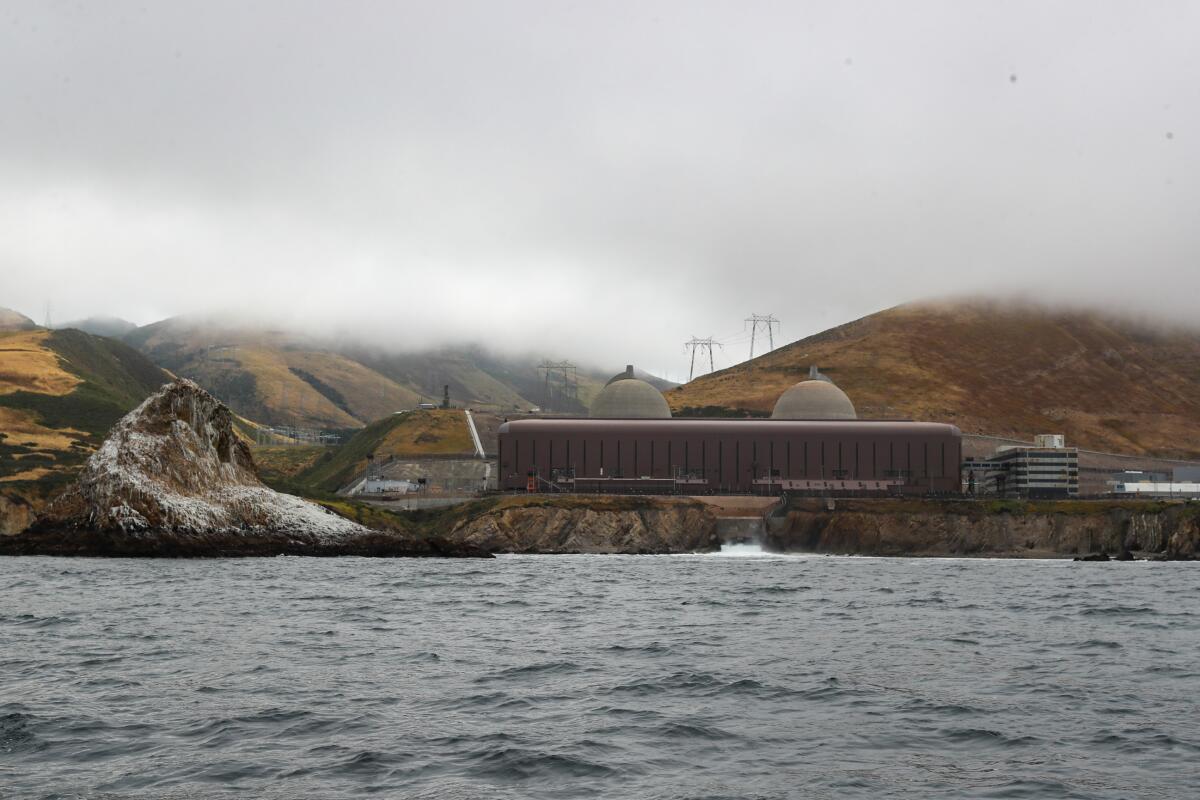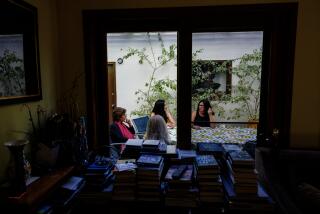Letters to the Editor: Can nuclear power really save us from the worst of climate change?

- Share via
To the editor: Nuclear power is not climate-friendly. (“We toured California’s last nuclear power plant. Take a look inside,” July 13)
Solar energy and efficiency measures provide powerful solutions for addressing climate change. As we confront the sixth mass extinction and the loss of habitats due to a warming climate, it’s essential to prioritize proven solutions. Conserving and restoring natural spaces limit carbon emissions and aid in adapting to the changing environment.
The Diablo Canyon nuclear plant’s impact on marine life, causing the deaths of billions of organisms, underscores the need for sustainable choices.
Additionally, nuclear power is not emissions-free. Activities like uranium extraction, transport and waste management emit greenhouse gasses. Comparatively, photovoltaic solar panel systems release 3.5 times less carbon dioxide per kilowatt-hour than nuclear power, as reported by the German Environment Agency.
Redirecting resources from nuclear power to solar energy and efficiency measures is crucial for effectively addressing climate change. By doing so, we seize the opportunity to create a cleaner and more sustainable future, making significant progress in combating climate challenges.
Andrea Leon-Grossmann, Los Angeles
The writer is deputy program director of the West for Vote Solar.
..
To the editor: When making a decision about something, it’s reasonable to see what the smartest people on the topic have to say about it. When it comes to Diablo Canyon, we don’t have to look farther than a study by researchers at the Massachusetts Institute of Technology and Stanford.
That study suggests ways of retrofitting that plant and keeping it running until 2050 that would save California $21 billion in electrical grid costs and 90,000 acres of land that would otherwise have to be covered with solar panels.
All forms of electricity generation have downsides. Thus, it is reasonable to compare various forms of electricity generation using the following ratio: number of deaths that can be attributed to the means of generation over a very long time, divided by the amount of energy produced by that means of generation over the same time.
This has been done by several organizations, and nuclear always comes out among the very best. So, from a historical perspective, one can only conclude that nuclear is relatively safe.
The problem of waste is not intractable if this country is willing to recycle used fuel (what we call nuclear waste). This would also reduce the need for mining uranium.
And speaking of waste, solar panels last about 25 years. How many millions of panels would have to be discarded every year, including those that contain toxic chemicals? This waste is orders of magnitude greater than the amount of waste produced by nuclear power.
Joel Weiner, Tarzana







